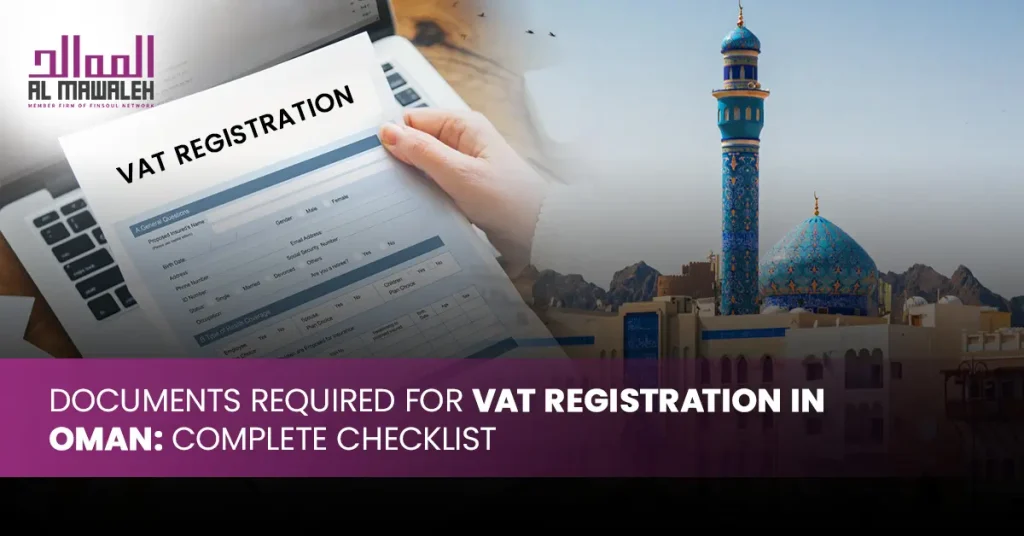- Welcome to Al-Mawaleh
- Majan building , Opposite CSK cafe ,Ghala,Muscat Governorate,Sultanate of Oman

If you’re running a business in Oman, VAT registration isn’t just another bureaucratic step—it’s a legal necessity. Since the implementation of Value Added Tax (VAT) under the Oman Tax Authority (OTA), every business meeting the taxable threshold must comply. But here’s where many get stuck: not knowing exactly which documents are required for VAT registration.
Missing even one essential document can delay your registration, affect compliance, and potentially lead to fines. Al Mawaleh provides a complete and updated checklist for 2025, helping Omani businesses register seamlessly and maintain proper VAT compliance under the country’s evolving tax laws.
VAT was introduced in Oman in April 2021, following the GCC’s unified tax framework. It applies to most goods and services, with limited exemptions. Businesses with an annual taxable turnover exceeding OMR 38,500 are required to register, while those crossing OMR 19,250 can opt for voluntary VAT registration.
With Oman’s economic diversification goals under Vision 2040, tax compliance has become a cornerstone of sustainable business growth. Hence, understanding the documentation requirements ensures your company stays ahead—both legally and financially.
Before starting the registration process on the Oman Tax Authority (OTA) portal, ensure you have all these documents prepared and up to date:
Tip: Keep all documents in PDF format with clear scans to prevent upload errors during registration.
Here’s how to navigate the VAT registration process efficiently:
The entire process can take between 5 to 10 business days, depending on document accuracy and the authority’s review timeline.
Even experienced businesses sometimes overlook critical compliance details. Here are a few common pitfalls to avoid:
Avoiding these mistakes helps ensure smooth approval and long-term VAT compliance in Oman.
In 2025, the Oman Tax Authority is placing greater emphasis on digital tax reporting and audit readiness. Businesses that fail to maintain organized VAT documentation risk penalties or suspension. Proper records are not only a regulatory requirement but also improve financial transparency, cash flow management, and audit preparedness.
Moreover, businesses aiming to expand internationally or attract investors will find VAT-compliant documentation crucial in building credibility and trust.
At Al Mawaleh, we specialize in helping businesses across Oman handle their VAT registration and compliance with ease. Our experts guide clients through every step—from preparing documents to submitting applications—ensuring accuracy and compliance with the Oman Tax Authority’s requirements.
We also provide ongoing VAT advisory, accounting, and audit services, enabling your business to remain compliant long after registration. Whether you’re a startup or a well-established enterprise, our professionals ensure your business stays ahead of regulatory updates and financial best practices.
VAT compliance is more than a legal checkbox—it’s a mark of a professionally managed and future-ready business. By preparing the right documents and following the proper registration process, companies in Oman can avoid unnecessary penalties and build lasting trust with clients, partners, and regulators.
With expert guidance from Al Mawaleh, you can ensure a smooth VAT registration process and long-term compliance with Oman’s tax laws. Stay proactive, stay compliant, and set your business up for sustainable success in 2025 and beyond.
📞 Contact Al Mawaleh today at +968 7733 8545
🌐 Visit: https://mawaleh.com
Al Mawaleh is a leading financial consultant company in Oman, delivering expert accounting services, professional auditors, and trusted financial solutions advisor support for businesses through top financial consulting firms expertise.